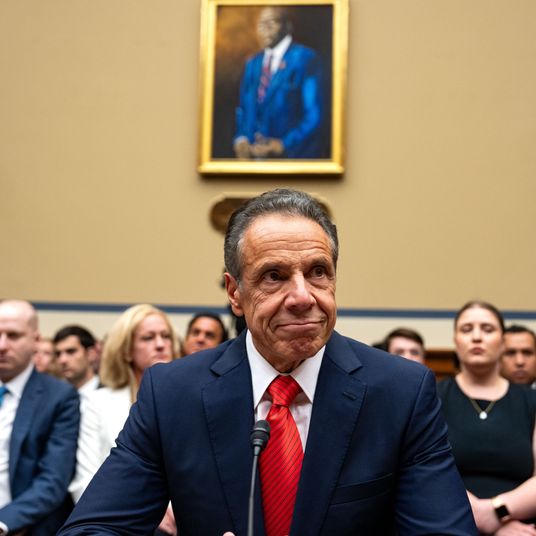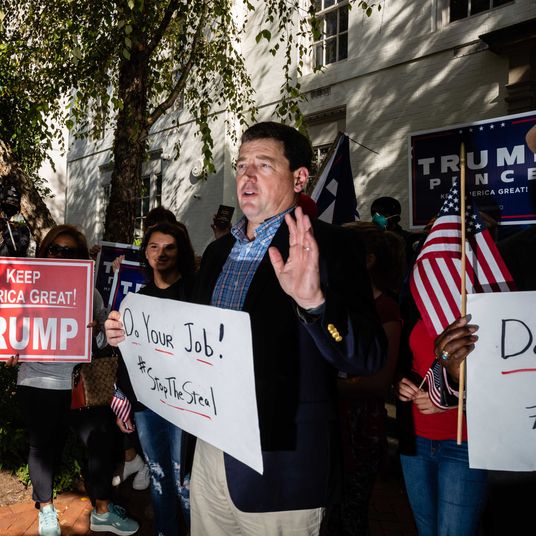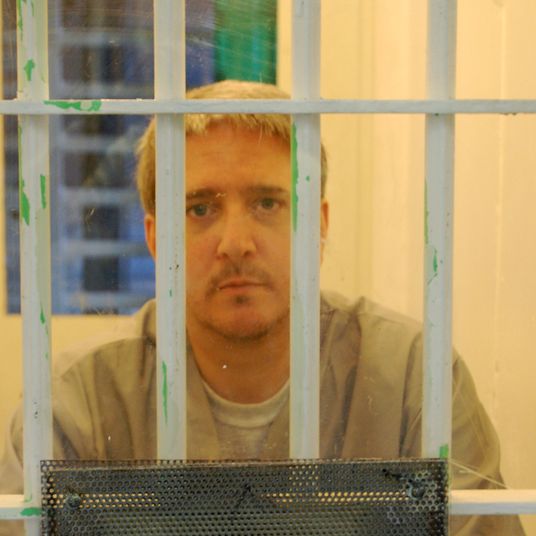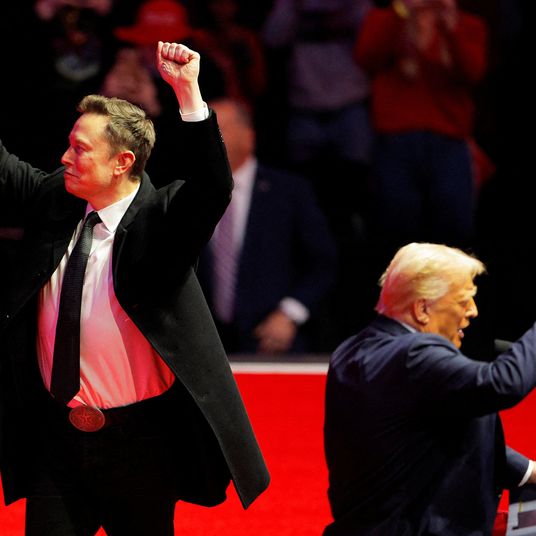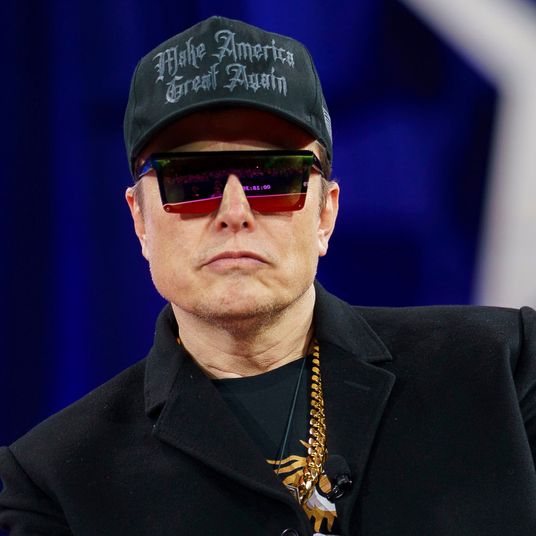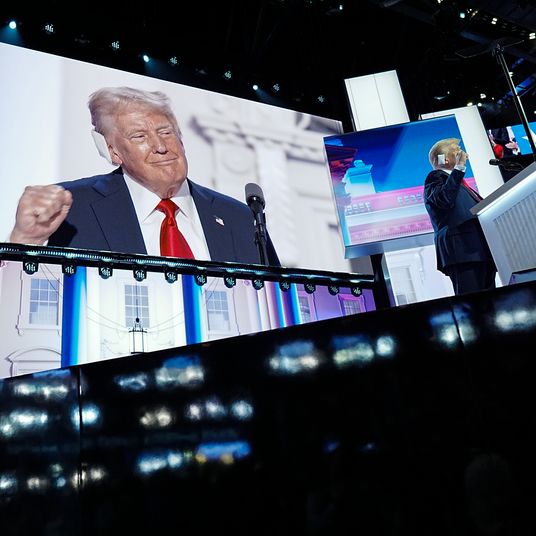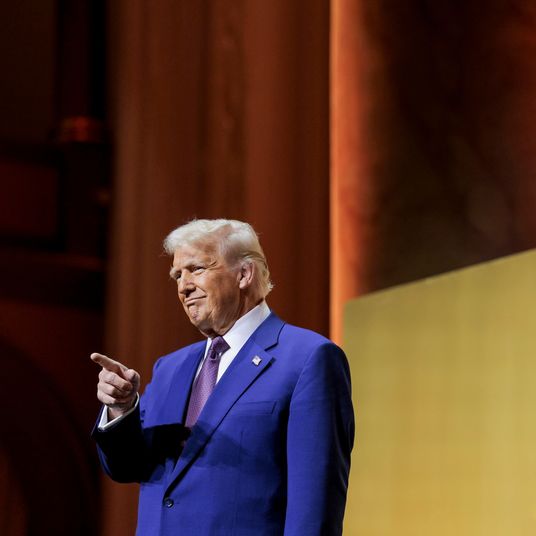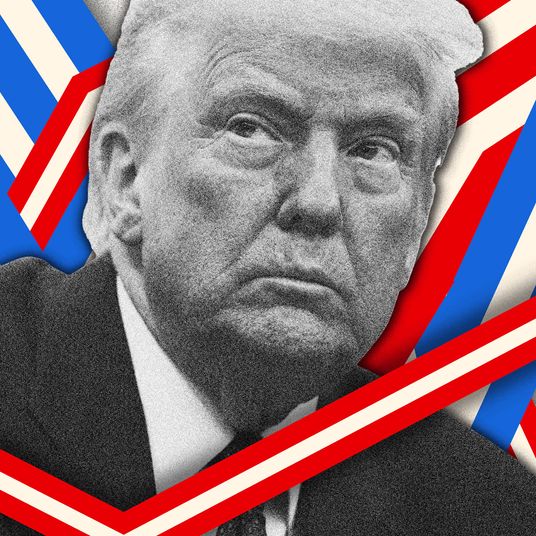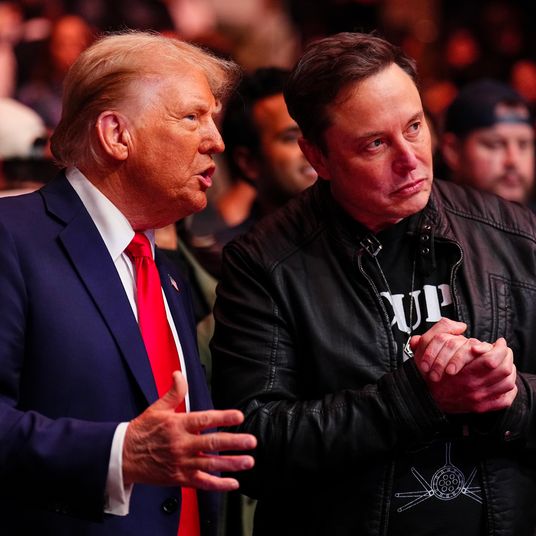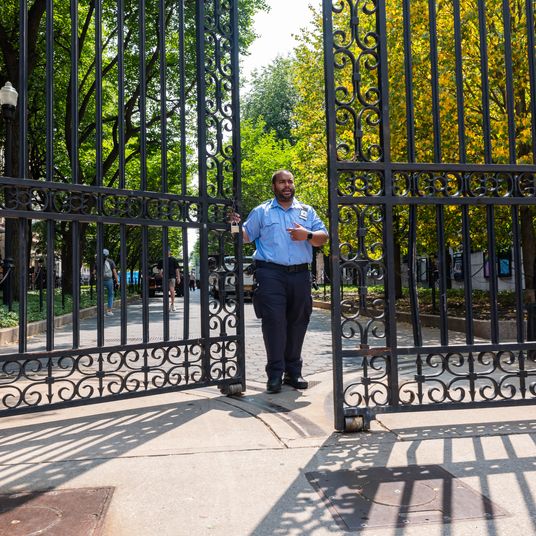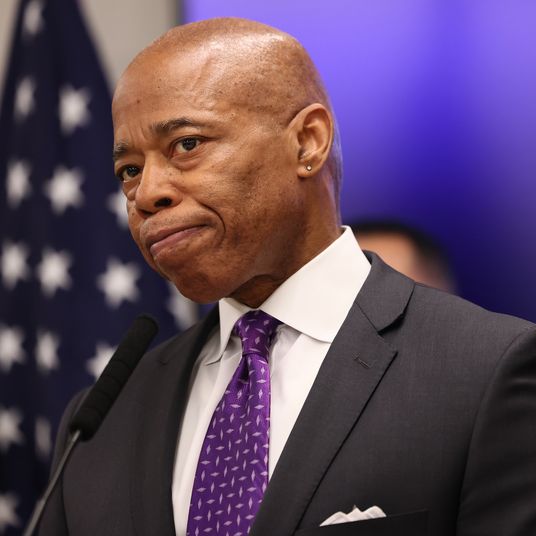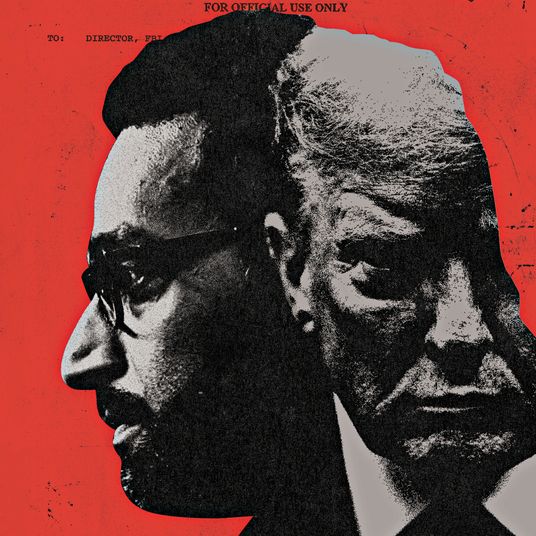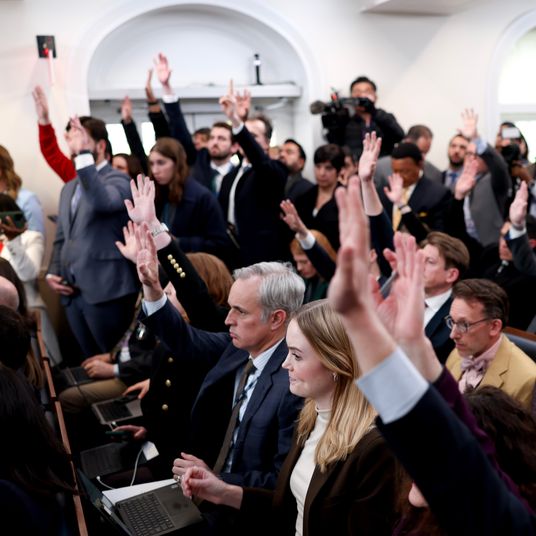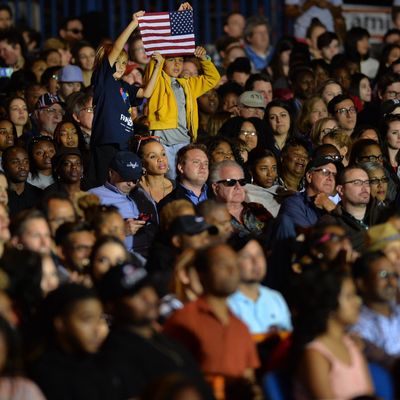
Thomas Frank is a founding editor of The Baffler magazine and the author of 11 books, including The Conquest of Cool, What’s the Matter With Kansas?, and Listen, Liberal. A self-described populist, Frank has long been a critic of what he sees as the modern Democratic Party’s abandonment of its working-class, New Deal–era roots in favor of the politics of the professional-managerial elite: cultural progressivism, economic centrism or even conservatism, and deference to technocratic expertise. This transformation, Frank argues, has allowed Republicans to successfully rebrand as the anti-elite, anti-Establishment party — capitalizing on class-based cultural conflicts safe in the knowledge that neither major party poses a threat to the economic status quo.
Frank’s latest book, The People, No, is a history of American populism and an attempt to reclaim it from both its liberal critics and the conservatives who wish to don its mantle. Frank argues that ever since the rise of the original People’s Party in the 1890s, populism, rightly understood, has referred to mass movements of working people organizing to challenge entrenched economic and political power. And since the 1890s, populism has been vilified by the Establishment in remarkably similar terms: as irrational, paranoid, intolerant, conspiratorial, and anti-intellectual. What has changed is that as Democrats have become the party of society’s winners — the well-paid and well-graduated meritocrats who fill the ranks of Wall Street, Silicon Valley, and the cultural Establishment — the party has become one of anti-populism, a stance once reserved for the conservative business interests that opposed the People’s Party in the 1890s and the New Deal in the 1930s. Frank argues that the 2016 election, which Donald Trump won by offering a faux-populist alternative to a long string of very real elite failures, has only solidified the conviction among many liberals that populism is a disease and that “democracy must be controlled … before it ruins our democratic way of life.”
With the 2020 election approaching — and shaping up to be at least in part a referendum on expertise — Frank spoke on the phone with Intelligencer to discuss populism, anti-populism, and why the Democrats should embrace their legacy as the party of the people.
Populism has kind of a bad reputation now — it’s associated with Trump, and you hear the phrase “far-right populism” a lot. Your book argues that’s a misunderstanding of the populist tradition and what it represents. So what is real populism?
My definition would start with the people who made up the word and what they were, what they were trying to name when they made it up. Populism was a third-party movement in the 1890s, mainly of farmers but also of industrial workers. And they were trying to reform the unregulated capitalism of their day and the political process itself — this was a time of outrageous corruption in American politics. And it was a notably transracial movement. Famously, in the South, they reached out to Black farmers and tried to get white farmers to join forces with them. It didn’t succeed, but they did try. What’s intriguing is that the definition you described earlier is completely the opposite of that. And of course I’m aware of that, right? So the book becomes an effort to understand how the original definition of the word got changed and who did that and why.
Why did you feel the need to reclaim this particular word? Why not just say you’re a liberal or a socialist or a progressive?
Well, it’s a word that I identify with and have always identified with. And it’s in the American grain — in some ways, it is our radical tradition. It’s not Marxist, it’s not imported from Europe, it’s a very American phenomenon. And then there’s just the intellectual perversity of the current discourse — that here’s a word that had a positive meaning for decades and decades and decades and then all of a sudden it completely flips.
In your book, you trace the, uh … dialectic … between populism and anti-populism. Describe the conflict that initially arises around the populists. We now think of anti-populism as this liberal-centrist attitude, but in the late-19th century, it was very different, right?
Yes, but the important thing to remember is that there is continuity. There is a straight line from the people who hated populism in the 1890s to the people who hate populism today. The anti-populists in the 1890s, today you would describe them as extreme right, but people didn’t use terms like that back then. They would have described themselves as conservative or responsible or orthodox. It was the Establishment of the 1890s, by which I mean all the different elites in society — millionaires, industrialists, academics, clergy, and, most important of all, the news media. They all came together to denounce this thing that they called populism and to pretend to try to understand it.
They saw populism as an uprising of the lower orders against the rightful rulers, the people who understood how things worked. Populism was supposed to be anti-intellectual, hostile to learning and expertise. It was supposed to be a form of mental illness — a kind of mass hypnosis in which the riffraff of society are somehow elevated to its uppermost ranks. And that carries through almost precisely to our own day, where in story after story populists are described as people who don’t listen to expertise, who don’t respect the rightful hierarchy of our time.
The passengers who want to fly the plane.
Yeah. Or the people who didn’t go to fancy colleges who won’t respect those who did. And the thing is, the populists were actually right about a lot. They were opposed to the gold standard, and the Establishment intellectuals of the period just couldn’t couldn’t believe anybody would be stupid enough to question the gold standard. But the gold standard was a terrible thing. The populists were right, and the experts were wrong.
You portray the New Deal as the high-water mark of populism in government. Another way of looking at it is the beginning of progressive technocratic government: Roosevelt himself was an aristocrat, and this is where you start bringing in academics to run government agencies. There’s FDR’s brain trust, that sort of thing.
There are two schools of thought about that, but you’ll see very quickly which one I’m part of. The 1930s is the great decade of the common man. It’s in the culture — look at the Frank Capra movies or WPA-style mural painting or Diego Rivera’s. There’s this reverence for ordinary working-class people. It’s also the great decade of organized labor. You have, again, a mass movement of working-class people who were by this time, in organizations like the Congress of Industrial Organizers, militantly anti-racist. They’re working for economic democracy, and they largely succeed. Roosevelt himself used populist language all the time, talking about the common man, about chasing the money changers from the temple. And he enacted a lot of the populist program — he takes us off the gold standard in 1933, there’s a big farm program, public works to alleviate unemployment, an aggressive income tax.
We often look back at the New Deal era and say this is the triumph of the technocrat because all of these intellectuals start moving into government. And that is true. What we don’t recall is how anti-orthodox so many of the experts Roosevelt brought in were. This was especially true in economics — the orthodox economists of the 1930s absolutely despised Roosevelt and despised what he was doing. I quote John Kenneth Galbraith in the book, who said that the economists who supported the New Deal were seen as “cranks, crackpots, eccentrics, and the vaguely irresponsible.” Herbert Hoover was the real technocrat, he was an engineer who was advised by all of these orthodox economists, and his efforts to do something about the Great Depression completely failed. Then Roosevelt brings in people from really out-of-the-way places, both geographically and intellectually, and puts them in charge of things. That’s the thing about populism — it’s not anti-intellectual, it’s anti–intellectual orthodoxy.
One interesting section of your book deals with the rebirth of anti-populism in the postwar years with people like Richard Hofstadter. It’s a new type of elite making this critique — liberal, meritocratic, university-educated — yet their version of anti-populism ends up sounding remarkably similar to that of the conservatives of the 1890s.
Yeah. Hofstadter was the leading figure of a group of scholars and intellectuals known as the “consensus intellectuals” who came up in the 1950s. He wrote a book about the 1890s populists, massively influential at the time but not widely read anymore, called The Age of Reform, which came out in 1955 and got the Pulitzer Prize. He tried to describe populism through a psychological lens, and he depicted it as a kind of irrational movement, using a lot of the same stereotypes that had been used in the 1890s — that it was paranoid, anti-intellectual, driven by conspiracy theories. And he said that this was because populism spoke for people who were on their way down in society, it was a movement that represented the pathologies of farmers who were declining in status and whose opinions were a product of this status anxiety.
That section reminded me of a lot of the analysis you saw after 2016 — that white people, and especially non-college whites, voted for Trump because of status anxiety.
Yeah, absolutely. It’s the same. And there’s a whole discipline now, populism studies, that’s based on Hofstadter’s theory. But it’s worth noting that Hofstadter’s attack on populism was immediately, crushingly refuted by other historians — I mean, he claimed they hated immigrants, and this guy, Walter Nugent, writes a whole book called The Tolerant Populists, where he does this really granular study of populism in Kansas and shows that many of the populists were immigrants themselves and that they reached out to immigrants in all sorts of ways.
That didn’t matter, because Hofstadter tickled the intellectual vanity of a generation. This is 1955. It’s the age of the managerial revolution and the massive expansion of the universities. So people with M.B.A.’s are running the great corporations. People with Ph.D.’s are running the departments in Washington. Robert McNamara is going to run the Pentagon like he ran the Ford Motor Company. Hofstadter is writing a manifesto for this generation of professionals, and his argument is basically that when you try to get reforms through a mass movement, it always fails. But when you have a bunch of people like Hofstadter and his friends sitting around a table in Washington and making decisions among themselves, they can come to consensus. Another one of the consensus intellectuals, Edward Shils, writes in The Torment of Secrecy that what you really need is “a sense of affinity among the elites.”
A lot of this stuff is really shoddy scholarship, but it had a huge impact because you’re talking about the class interests of the scholars themselves. And so when you say it reminds of you 2016 — yeah. And the critical part of it is that when we use the word populism in Hofstadter’s way, we’re not just making a mistake about the distant past. We’re also implying the other half of it, which is that rule by a managerial elite is desirable. The elitism is baked into the cake.
I want to jump forward to the ’60s, the New Left, which is a big part of this book and Listen, Liberal and even What’s the Matter With Kansas? The common theme is the severing of the link between liberals and the Democratic Party on the one hand and the populist tradition on the other. I think you see sort of the origins of this in the student movement of the ’60s. You’re positive about MLK and the early years of Students for a Democratic Society and the Student Nonviolent Coordinating Committee, but you also think that the student movement previews the transformation of the Democrats into the party of the affluent middle class.
So that goes all the way back to my very first book, The Conquest of Cool. Society is faced with all of these different criticisms of capitalism, and which one does it choose? That the real problem with capitalism is that it has these psychic costs for people — instead of that it ruins their lives and it makes them work for nothing. That’s the legacy of the ’60s.
And how does that happen? Because it starts out so hopefully. My chapter on the ’60s begins with one of Martin Luther King’s more famous speeches, in which he actually does this shout-out to the original populist movement. This is at a time when the consensus intellectuals are really abusing the word populism, and he uses the word correctly, with clinical precision. And you find a lot of that in the civil-rights movement and in the early days of the New Left. And SNCC, these guys really did have a populist model for organizing, where they would go into southern cities and towns and try to organize the people who lived there — it wasn’t about SNCC’s national leaders.
It’s hard to put your finger on any one thing that went wrong, but one of the mistakes that the SDS made was that they came to understand the real aggrieved class in a capitalist society, the real revolutionaries, as students rather than workers.
You also mention that the student radicals, when they turned toward Third World–ism in the late ’60s and early ’70s, begin developing this attitude of contempt toward the American working class. This idea that these people are just hopeless reactionaries.
Yeah, that stereotype was just everywhere at the time. And the Democratic Party decided at the same time that it didn’t want to be the party of working-class people or labor unions anymore; it wanted to be the party of the kids on college campuses. It was the Age of Aquarius, you know, and the kids seemed like the future. But then the students of course grow up to be managers and professionals themselves. Now, in retrospect, this seems like a terrible mistake, because when a party of the left decides that it’s really not interested in the fate of working people anymore, you’re going to see exactly what has come to pass in this country, which is spiraling inequality, deindustrialization, and all the rest of it. But that’s who the Democratic Party really is today. I mean, you saw their convention, they do this wonderful show of, you know, the great American mosaic, but the group they really listen to is the professional elite.
I want to talk a little now about the political reaction to this, what you call the “pseudo-populism” of the right. You argue that the transformation of the Democrats into this affluent professional-managerial party opens up room on the right for a politics of cultural resentment.
It’s fake populism. This is what What’s the Matter With Kansas? was about, that as the Democratic Party leaves those issues and that rhetoric behind it, it opens up a huge terrain for the right to pretend to care about those people. And I don’t want to make this all out to be just empty culture-war fights signifying nothing. There’s something very real about the fact that the Democratic Party just doesn’t listen to labor unions anymore.
Just to gently push back: There’s a way of telling this story in which these “empty culture-war fights” are essentially fake, as opposed to the “real” issues of wages and economics — that the right exploits meaningless cultural issues in order to deregulate the economy and pass tax cuts. There may be some truth to that, but Christopher Lasch is someone you cite a lot in this book, and in his work there’s a real sensitivity to the importance of these cultural issues. For educated people, the conflicts over busing or religion or sexuality or whatever reinforce the sense that working people are not really worthy of our concern because they’re authoritarian, behind the times. And then for the working class, it really drives home this perception that they are held in contempt. And Lasch seemed to believe that this tension was baked in because the values of the managerial elite were precisely the values of liberal-capitalist meritocracy: individual autonomy, self-development, personal liberation, etc., the flip side of which is a suspicion of working-class values like solidarity and thick ties like family and religion and neighborhood. The working-class view is more conservative, in a sense, but it’s also a product of a real class difference in how people see their place in the world.
Well, yes, I totally agree with that. I thought you said you were pushing back.
What I’m trying to get at is: There’s a sense in which this is a very real dividing line between more affluent, college-educated Democrats and members of the white working class and even sections of the non-white working class, where the former are often socially liberal and economically conservative/centrist and the latter are often economically liberal but more conservative on issues like abortion, immigration, crime, etc. How do you think Democrats or the left more broadly should try to navigate this divide? Do you think that open conflict over these issues can be avoided if you just focus on economics? Or does something eventually have to give — working-class whites moving left on culture or educated liberals deciding that they need to accept people with more conservative social views — say, a pro-life, gun-owning Catholic — as a part of the coalition?
This is a problem, of course, but I also think it is possible for people to come together on a common cause without agreeing on everything. The problem is getting the Democrats to acknowledge that common cause. Up until now, the Democrats have spent all their resources reaching out to those affluent white-collar people in rich suburbs. Those are the only “swing voters” they’re interested in. This bunch gets everything. It’s all crafted to please this group — economic policies, culture-war stances, everything. I happen to think a really robust program for reclaiming middle-class America from the forces that have wrecked so many people’s cities and lives and health would be immensely popular. It would be so popular that lots of people would be willing to overlook, say, one’s views on gun control in order to get behind it.
Let’s go back to where we were. So the Republicans do capitalize on this stuff. When the Democrats make these moves in the late ’60s and early ’70s, they think they’re doing the right thing and reaching out to this better, more enlightened group of people. But the Republicans, who are very able players of the political game, are just rubbing their hands with glee. It’s like, look at the Democrats giving up on this enormous constituency. If we play this right, we can win those people over. It starts with Richard Nixon, and it basically continues along those lines with right down to the present day.
Speaking of the present — what does a healthy, modern populism look like? You’re quite positive about the Bernie Sanders campaign in your book.
Yeah, that’s a good example of it. I think Sanders is tapping into the populist vein. And there’s still organized labor and farmers unions and things like that, although they’re nowhere near as powerful as they used to be and don’t get a lot of public attention anymore. And Black Lives Matter is something that could become a populist movement, if it were to develop it in the right way and become more critical of capitalism.
But here’s the deal. As I look at the left in America today, the great impulse seems to be in correcting and purging and denouncing. The left seems more interested in replicating Twitter in people’s individual lives than it is in movement building, far more interested in this constant struggle for individual righteousness. And that’s a product of the liberalism of the professional elites. They are not about being part of a movement. There is no solidarity in a meritocracy — it’s about you as an individual being better than every other individual.
That’s something nice about Joe Biden. The emblematic anti-populist statement of our time was Hillary Clinton calling all these people “deplorables.” Clinton knew what a mistake that was and tried to take it back, but the larger liberal movement was like, “No, that’s exactly who they are.” One of the things I like about Biden is that he would never do that. He would never call people deplorables. He has a certain human empathy that I find refreshing, and that’s kind of unusual among liberals these days.
One thing that stuck out reading your book, with its skepticism of expert authority, and then watching the Democratic convention and some of the party’s messaging, is the extent to which the coronavirus and Trump’s general aura of ineptitude seem to have reinforced the Democrats’ impulse to present themselves as the party of expertise. We’ll be the ones to listen to the experts, we’ll be the ones with a “science-based” policy for fixing the country.
It goes further than that. I mean, obviously you listen to medical authority when you’re in the middle of an epidemic, but that doesn’t mean that all experts are always right, which is the implication here. And that’s the implication of all of this anti-populist literature — that we’re in the middle of a terrible problem in American life, and that problem is that people have stopped respecting authority. And in my opinion, the real problem is that we’re living through a period of incredible elite failure, which this literature never acknowledges as a possibility.
I don’t like to belabor this point because it was the subject of Listen, Liberal, but elites fail again and again and again in highly predictable ways. And the reason that they fail is because they act as a class just like any other social cohort. I’ll give you an example drawn from health care. Like let’s say we were to listen to medical authorities all the time on these things. Well, as a matter of fact, we’ve largely done that in America, and that’s why we don’t have universal health care in this country. I mean, Harry Truman proposed it in 1948. He ran for reelection on it and he won and then he went to get it enacted and who defeated it? The American Medical Association. The conflation of expertise also annoys me. Like, this idea that because doctors understand germ theory therefore we have to listen to economists or the CIA.
Even with the public-health Establishment during the virus, you saw these sorts of real-time shifts and reversals in expert opinion — on masks, lockdowns, travel restrictions, those sorts of things.
We’re not going to know until this is all over who was right and who was wrong. And just to say blindly that we trust experts is a really naïve understanding of expertise. It’s not like somebody has the truth carved onto a stone plate and they’re just going to hand it down to you. Obviously medicine is not my subject, but history is, and I can tell you it doesn’t work that way. People argue and argue and argue, and the interpretation of things goes back and forth all the time.
You briefly touched on this earlier, but what’s your perspective on Black Lives Matter and the protests that have come out of the death of George Floyd? It seems like an interesting case study, because on the one hand there’s clearly this huge popular mobilization around incarceration and police brutality. On the other hand, there’s a clear co-optation or attempted co-optation by kind of the Establishment — corporate messaging these days is just swamped with expressions of support for Black Lives Matter and racial justice.
I think that battle is yet to be fought. Yes, of course, capital, “woke capital,” the business community — it’s reaching out to swipe the righteousness of this movement. That is happening, and it’s very interesting. But I want to talk about the positive side of this because it’s really important to me. We in this country have been widening and widening the circle of people that we throw into prison for very long stretches of time, going back to when I was a kid in the 1970s. And I remember when they passed the crime bill of 1994, it was just so low. This is one of the truly monstrous things that our society has done in my lifetime, and the Democrats are just as guilty on this as the Republicans. And I’m sorry to say one of the people most responsible for these kinds of laws is the lovable Joe Biden.
I was writing about the crime bill of 1994, and I remember speaking to an expert on mass incarceration, and this woman told me everything I wanted to know about what the law had done and what its effects were. And then, I don’t remember the exact words, but she said something like, “Unfortunately you’re never going to be able to make anybody care.” This is someone who had worked on this for years and years and years, and there was this sense that you were just banging your head against a brick wall.
That’s now been reversed. That gives me hope and it makes me happy. This movement toward more and more incarceration was unstoppable, and then suddenly it stopped and now it’s going the other direction. And that is profoundly inspiring.
Park MacDougald is Life & Arts Editor of the Washington Examiner magazine.






